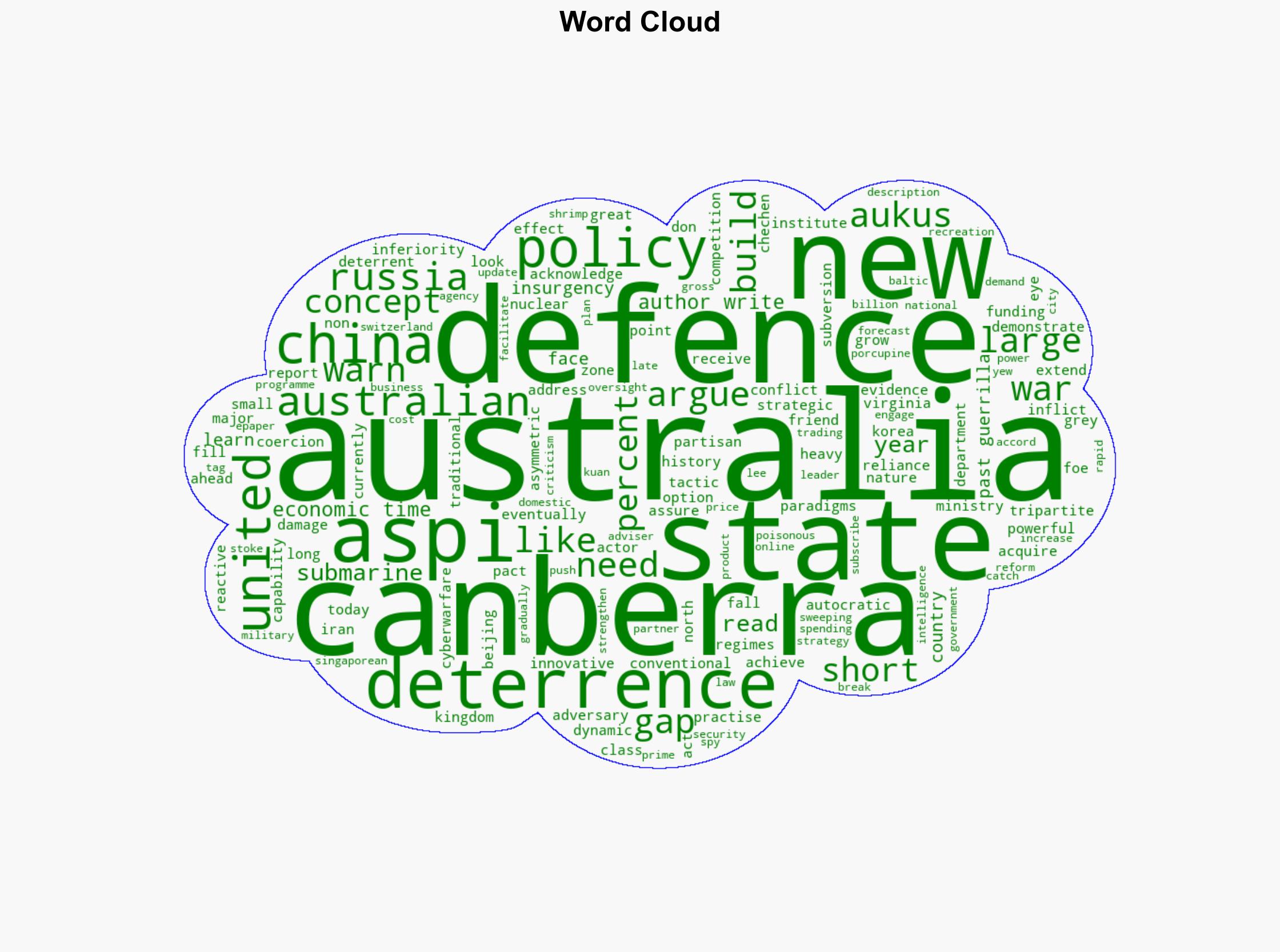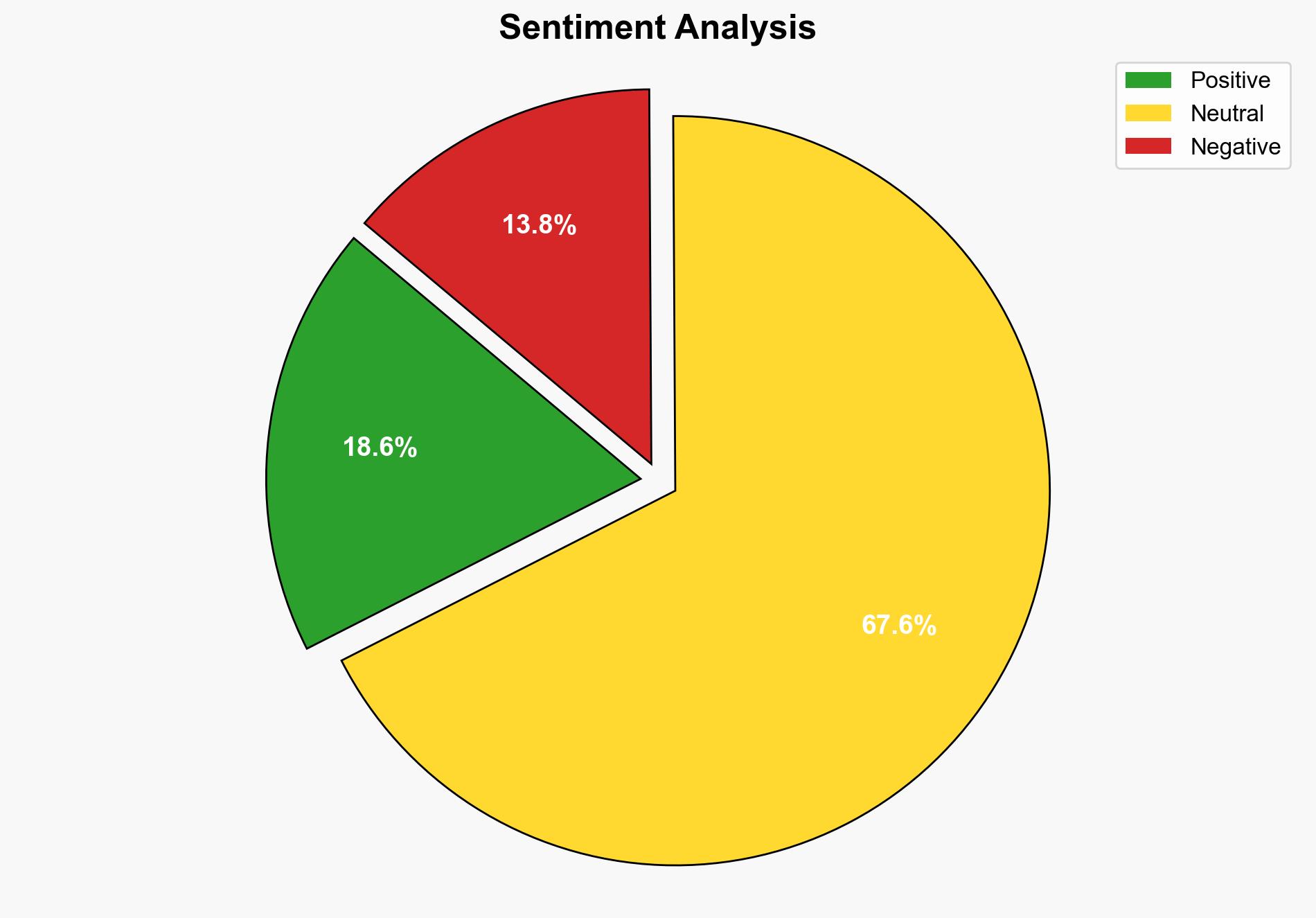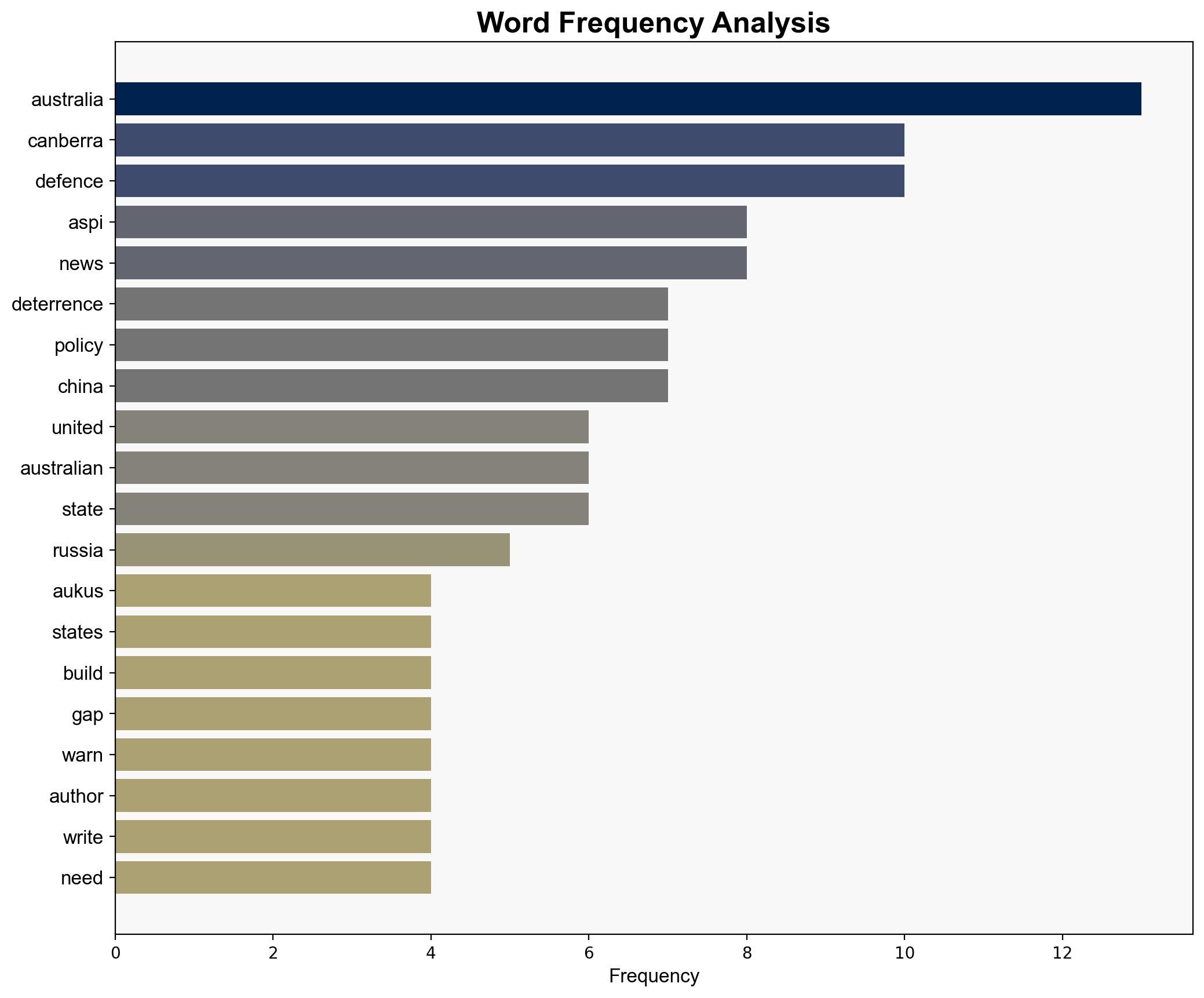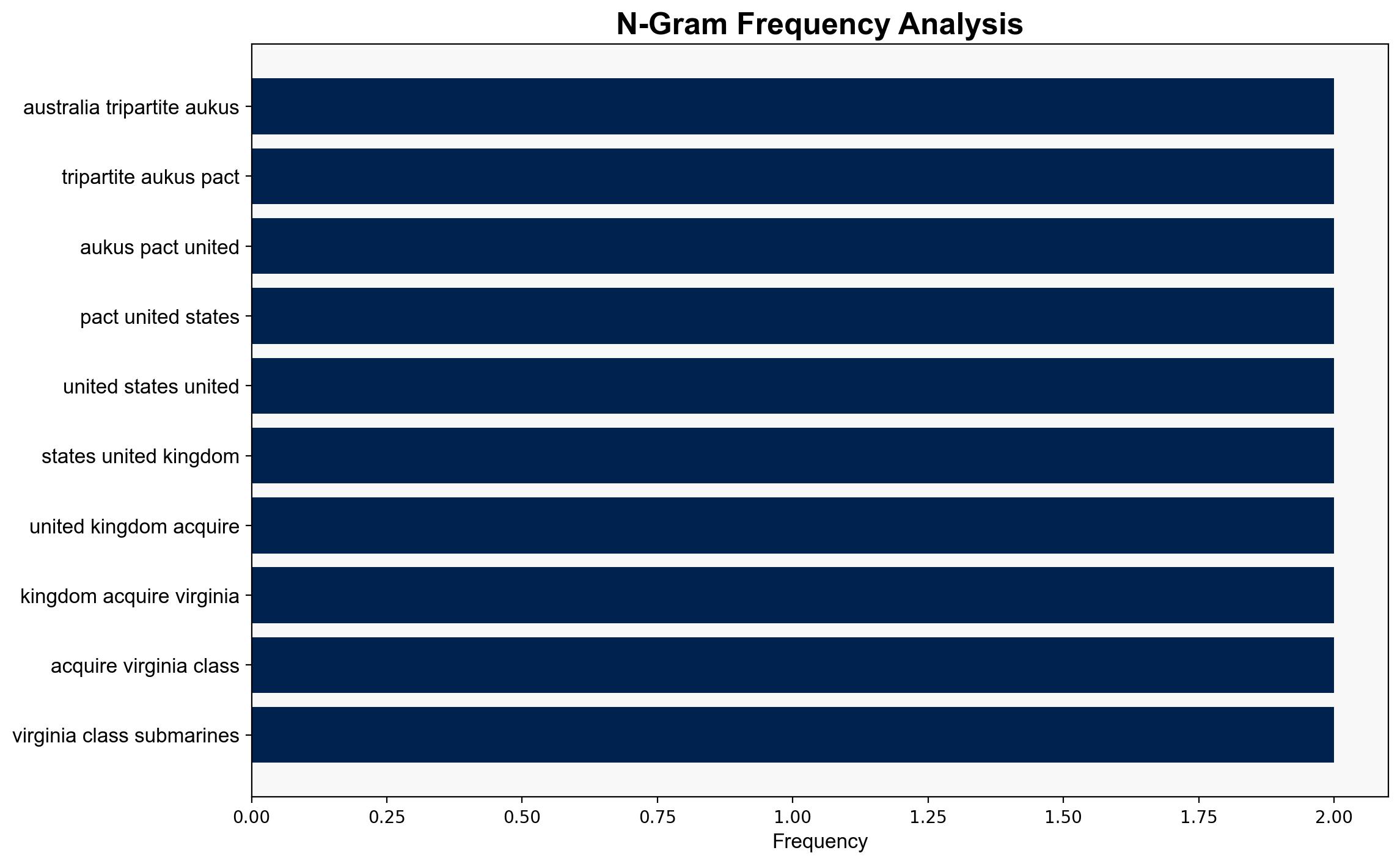Australia Must Deploy ‘Unconventional’ Means To Deter China Russia Think Tank – International Business Times
Published on: 2025-10-15
Intelligence Report: Australia Must Deploy ‘Unconventional’ Means To Deter China Russia Think Tank – International Business Times
1. BLUF (Bottom Line Up Front)
Australia is advised to adopt unconventional deterrence strategies to counter potential threats from China and Russia. The most supported hypothesis suggests that leveraging asymmetric warfare tactics, similar to those used in past guerrilla conflicts, could effectively fill Australia’s current defense gap. Confidence level: Moderate. Recommended action: Develop and implement a comprehensive asymmetric defense strategy while maintaining traditional alliances.
2. Competing Hypotheses
1. **Hypothesis A**: Australia can effectively deter China and Russia by adopting unconventional warfare strategies, drawing lessons from past guerrilla insurgencies.
2. **Hypothesis B**: Australia’s best deterrence strategy lies in strengthening traditional military capabilities and alliances, such as the AUKUS pact, rather than relying on unconventional methods.
Using Analysis of Competing Hypotheses (ACH), Hypothesis A is better supported due to historical evidence of small actors successfully using asymmetric tactics against larger foes, as well as the current inadequacy of conventional deterrence measures against grey zone tactics employed by adversaries.
3. Key Assumptions and Red Flags
– **Assumptions**: It is assumed that unconventional tactics will be as effective in the current geopolitical climate as they were in past conflicts. Additionally, it presumes that China and Russia will not escalate to full-scale military conflict in response to unconventional deterrence.
– **Red Flags**: Potential over-reliance on historical analogies without considering technological advancements and geopolitical changes. The assumption that unconventional tactics will not provoke significant retaliation is a potential blind spot.
4. Implications and Strategic Risks
The adoption of unconventional deterrence strategies could lead to a shift in regional power dynamics, potentially provoking an arms race or increased cyber warfare. Economically, increased defense spending might strain Australia’s budget, impacting other sectors. Geopolitically, it could alter alliances and provoke diplomatic tensions.
5. Recommendations and Outlook
- Develop a comprehensive asymmetric warfare strategy, incorporating cyber capabilities and intelligence reforms.
- Maintain and strengthen traditional alliances to ensure a balanced approach.
- Scenario Projections:
- Best Case: Successful deterrence without escalation, leading to regional stability.
- Worst Case: Escalation into broader conflict, straining alliances and economic resources.
- Most Likely: Increased tension with sporadic cyber and grey zone engagements.
6. Key Individuals and Entities
– Australian Strategic Policy Institute (ASPI)
– Lee Kuan Yew (Referenced for strategic inspiration)
7. Thematic Tags
national security threats, cybersecurity, counter-terrorism, regional focus





